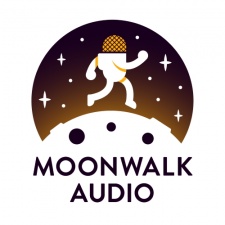Adam Gubman is a partner, lead composer, and audio director at Moonwalk Audio.
The world is an uncertain place, and even more so during the time this article was written. The human spirit bubbles up through change and difficulty, and the desire to make art demands attention and carries us through.
Moonwalk Audio was built on the foundation of making 'triple-A' audio no matter the challenge, and we've been fortunate enough that our clients desire to create amazing, bespoke work has not belied the production techniques that have changed since Covid-19 altered our lives.
Here are four things we're doing to maintain those standards during the pandemic.
Remote Musician Recording
While not a new concept for most of us that work in game audio, it's especially comfortable for my partner Alex Cox and I as we are set up to work remotely.
While other ends of the industry have halted, composers and sound designers in this space are used to working with less resources. Having a list of musicians that record remotely helps us with our higher profile clients who still expect top quality.
We recently recorded a battle theme with over a dozen musicians, all of which we would've put in the same space under "normal" circumstances, but our experience recording remotely yielded great results (with a little extra engineering due to differences in mics and spaces).
Remote VO Recording
Last week we recorded a few hundred VO lines for a large client of ours in China. Typically I’d book an engineer and a day at Margarita Mix Studios in Hollywood, but with timezones, tech setup, and overlaps, getting everyone to work concurrently (and in the evening) was a challenge.
It took a little extra time, as we were very conscious of the gain levels and volumes, as well as distance from the mic - things that we can easily fix "in the room", but not so easily over a Skype call - especially when many folks don't have the internet bandwidth to run video and audio concurrently.
Slowing down a few beats helped us to ensure that the technical details were handled properly, and an extra dose of focus (and a few additional takes) assured that we were able to direct without seeing the actors, and meet the clients needs - all while maintaining our standard of creativity and quality.
Remote Choir Recording
One of our big orchestra and big choir clients, having produced some of the most popular games in the history of the art, refuses to allow the pandemic to lower their standards.
Moonwalk is lucky to work with one of the most respected vocal contractors on the planet; Jasper Randall at Encompass Music Partners. Jasper and I have worked on various film projects together, TV series, etc., and I knew he and his team would cast the singers that could self-record and understand how to achieve the thickness and size of sound we needed. We settled on six singers - each one triple-tracking, and sometimes quintuple tracking their parts.
When we record smaller choirs to achieve that larger sound in the same space, there are a few things we do to increase the perceived choral size. We experiment. We'll do a take with pinched noses, change position of the singers (which changes tone and balance), and move folks around the room.
The inability to do this meant that we had to give a bit of extra instruction to the singers - and create a detailed list of techniques we captured remotely during the sessions.
The result; the project producer jokingly called it "The most EPIC choir performance recorded remotely during time of pandemic in the history of the company!", but joking aside, we were impressed by the talent and dedication!
Communicating The Process
This is what ties this all together. Over-communicating the process to clients used to working under different circumstances is key. Our clients' justified demand for fun and creative quality audio can be met, but assuring them that there is a process that takes a few extra steps has made all the difference.
Explaining how recorded material is delivered to us, how we fold it into the pre-existing material created in our own studios, proper tracking and organization of assets, and talking through the recording process during pre production has saved us quite a bit of confusion and headache. Sometimes, like all of us right now, we just need someone to say "hey, it's gonna work out, we're in this together".
Navigating these rough waters has been a challenge for the game industry. Figuring out the work-at-home situation spills into all aspects of creation, though music and sound design are not free from the smack of change that knocked most of us down a few pegs.
Our friends are suffering. It sucks to watch. We have not been free from the effects of quarantine, as many of our clients creating projects for live entertainment, museums, and family entertainment centers have put them on hold indefinitely, or simply closed their doors
Moonwalk is very fortunate to exist in an industry that has allowed us to adapt, and refine these remote production techniques, and we are certain that if faced with this again, we can and will make it work for all involved without sacrificing sound or creativity!





















